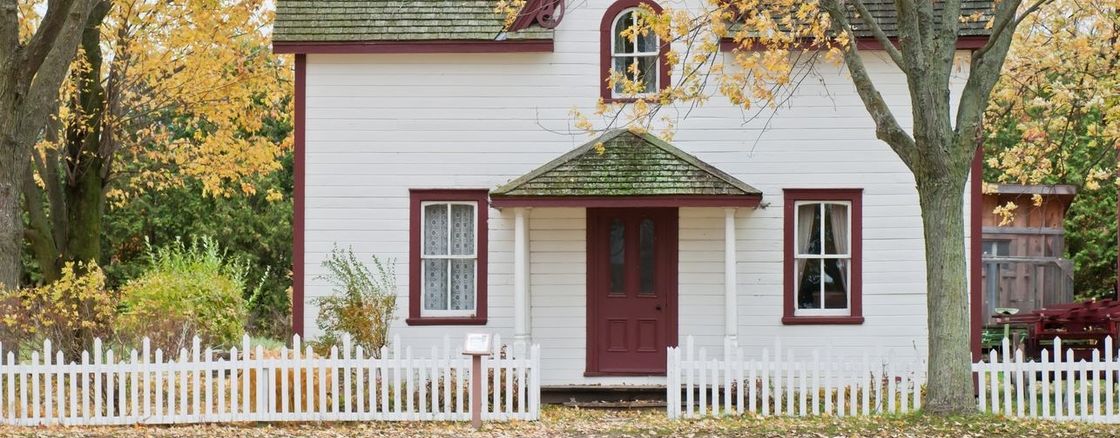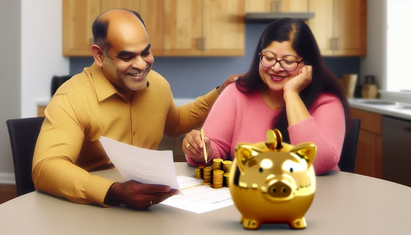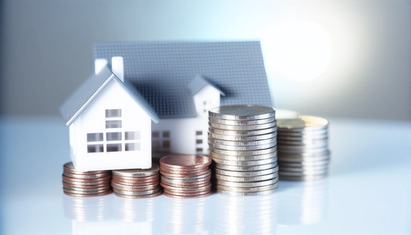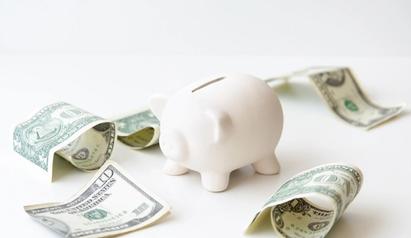Should I Prepay My Mortgage? Pros and Cons
Written by:
Patrick Boyaggi
Patrick Boyaggi
CEO an Co-Founder
Patrick is the Co-Founder and CEO of Own Up. He has a wealth of experience and knowledge as a mortgage executive.
See full bio

The Internet is filled with stories of people who are prepaying their mortgage or who have paid off their entire mortgage ahead of schedule. When asked why, many have the same answer. Holly Johnson paid off her mortgage by age 40 and reported to Business Insider that “the biggest reason we paid off our home loan had nothing to do with money—it's the freedom being free of debt brings to your life.”
Most people would prefer financial freedom, but prepaying your mortgage isn’t always the best path to get there. Remember, neighborhoods, houses, mortgages and people are all different. Own Up knows this, so we want to help you decide whether prepaying your mortgage is the best option for your individual situation. This starts with education, so you can be empowered to make the best decision.
It’s About More than Your Mortgage
Debt is often broken into two categories: good debt and bad debt. Good debt, like manageable student loans, real estate and small business ownership, lead to increased net worth. Bad debt is the kind you accumulate buying things you don’t need and can’t afford. On the other side of the equation is income, retirement savings and investments.
Before prepaying your mortgage, ask yourself these important questions:
- Is your monthly budget tight after paying necessary expenses?
- Is your income variable and/or unpredictable?
- How long do you plan to stay in your home?
- Are you saving enough for retirement?
- Do you have an emergency fund equal to three to six months of living expenses?
- How does the interest rate on your mortgage compare to other outstanding loans?
If you answer yes to any of these questions, experts warn against prepaying your loans, especially under three specific scenarios:
- Your mortgage is not your highest-interest debt
- You are still building your emergency fund
- You can get a better return investing your money elsewhere
Prepayment Versus Refinancing
Prepaying your mortgage and refinancing it are both ways to reduce the overall cost of your mortgage, but they are not the same thing. Refinancing changes the terms of your loan. Prepayments to the principal reduce the interest you pay over time.
Many homeowners refinance to save money, but in some cases it comes with costs. Fees for refinancing typically include an origination fee equal to about 1 percent of your total loan along with some smaller fees.
If you can reduce your interest rate by at least 1 percentage point, refinancing can be a good option. If you have a small loan with few years left, prepayment might be a better choice.
If refinancing is the better option for you, reach out to us. Because Own Up cuts out the middleman, our commissions are much lower than that of mortgage lenders. Lenders therefore offer our customers lower rates on their mortgages.
To Prepay or Not to Prepay
Dave Ramsey, the guru of the debt-free movement, suggests a mortgage is not always the place to start. He uses an example of two people with identical 30-year mortgages. One makes regular payments and puts $500 a month into retirement while the other doubles his house payments and puts nothing in retirement. In the end, the one who split between mortgage and retirement will be ahead because compound growth helped grow her retirement for less money.
Here’s another example. Say you have an extra $20,000 after paying monthly expenses, saving and investing. You are deciding whether to pay ahead on your mortgage or invest. You are 20 years into a 30-year mortgage that started at $200,000 and has a 4 percent interest rate. Paying down $20,000 of principal would save you about $8,300 and 2.5 years of payments. But what if you invested that same amount in index funds representing the S&P 500? The average rate of returns is 9.8 percent. At 9.8, your $20,000 would earn you $30,900. At 4 percent, it would still net you $12,500. Your return of investing is unknown, but it is likely higher than the prepayment savings.
But prepaying is not always a calculation of risk. Sometimes, it makes sense. For people who bought a house with private mortgage insurance, prepaying can cut back on the time it takes to reach the loan-to-value ratio you need to save what can be hundreds of dollars a month. And if you have paid off all other higher-interest loans and have sufficient emergency and retirement funds, paying early and not paying your lender more interest makes sense.
Debating whether to refinance or prepay your mortgage? We can help!


